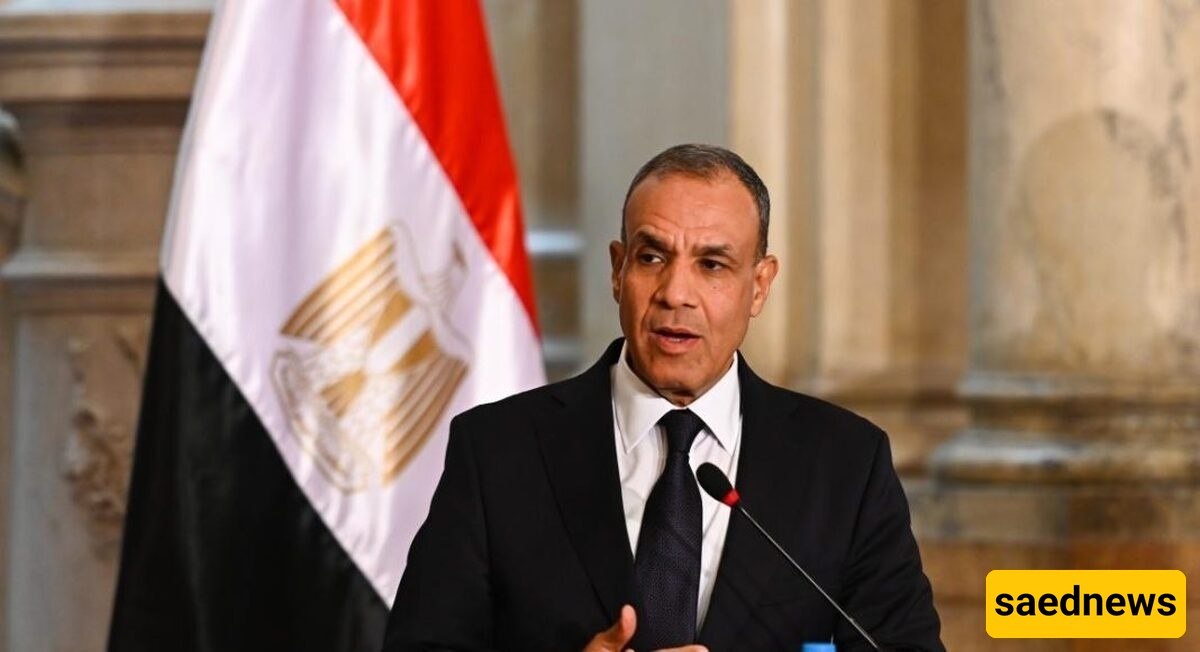SAEDNEWS: Egypt has warned that any Israeli attempt to forcibly relocate Gaza’s population would exceed Cairo’s tolerance and could trigger serious political and humanitarian consequences.

According to Saed News, quoting CNN, recent statements by Egyptian officials about the dangers of large-scale population relocation in the Gaza Strip have once again drawn global attention to one of the most crisis-prone regions in the Middle East. This warning not only reflects humanitarian and legal concerns but also mirrors the complex geopolitical developments that have affected the region in recent years. Egypt, which has always played a mediating role between Israel and Palestinian groups, has clearly stated that any action to forcibly relocate the population would cross Cairo’s tolerance limits and could have broad political and humanitarian repercussions.

The Gaza Strip, with a population of over two million people in an area of less than 400 square kilometers, has always been one of the most densely populated regions in the world and one of the most critical in terms of human conditions. Wars and repeated conflicts, a long-standing blockade, and severe economic and humanitarian restrictions have made daily life extremely difficult for the residents of this region. Under such conditions, any plan or even threat of large-scale population relocation could lead to an unprecedented humanitarian crisis and affect the political stability of the region.
From a diplomatic perspective, Egypt plays a special role. Cairo has consistently acted as the main mediator between Israel and Palestinian groups, particularly Hamas. Given its geographic position and shared borders with the Gaza Strip, Egypt not only pursues its security concerns but also highly values humanitarian and social issues. Any population relocation carried out without coordination with Egypt could threaten border security, domestic stability, and exacerbate the humanitarian crisis in the region.
Egypt’s warning also sends a clear message to the international community. Cairo officials have clearly stated that the forced relocation of Gaza’s population is a red line, and ignoring it could provoke widespread reactions. This warning comes as the world remains concerned about the humanitarian and human rights consequences of ongoing conflicts in the Gaza Strip. International organizations, including the UN and relief committees, have repeatedly warned about the humanitarian crisis resulting from the blockade and conflicts, and any action to relocate the population could worsen this crisis.
On the other hand, the political dimensions of this warning are also noteworthy. Over recent years, Israel has repeatedly pursued policies to control population movement and enhance border security, but large-scale population relocation not only conflicts with international human rights laws but could also heavily affect Israel’s relations with Arab countries and the international community. Egypt’s warning clearly indicates that no country in the region can ignore this issue, and any irresponsible action could lead to broader instability.
Global reactions to such warnings are also highly significant. European countries and international organizations have consistently been sensitive to the humanitarian crisis in Gaza, increasing their diplomatic pressure on Israel to respect human rights and prevent the forced relocation of people. These pressures indicate that not only Egypt but the entire international community is deeply concerned about the consequences of such actions and is prepared, if necessary, to take strong political and legal measures.
From a humanitarian perspective, the consequences of large-scale population relocation are catastrophic. The Gaza Strip, with high population density and severe resource limitations, lacks the capacity to accommodate forced relocations. Any attempt to transfer populations could worsen health, social, and economic crises and result in a widespread wave of homelessness and poverty. This is while Gaza’s infrastructure, due to years of blockade and conflict-related destruction, has minimal capacity to handle new humanitarian crises.
Egypt’s warning could also play a crucial role in strengthening diplomatic negotiations. Given Cairo’s position as a mediator between Israel and the Palestinians, the country can use its influence to facilitate dialogue and reconciliation and prevent a humanitarian crisis from turning into a large-scale disaster. Indeed, Egypt’s emphasis on the red line of population relocation could serve as a starting point for increased diplomatic pressure on Israel and encouragement toward peaceful solutions.
From a legal perspective, Egypt’s warning is also notable. International human rights laws and the Geneva Conventions prohibit the forced relocation of civilian populations during war and conflict. Any Israeli action in this regard could face strong international condemnation and have extensive legal and political consequences for the country. By declaring its red line, Egypt has reminded the world that such potentially illegal actions must not be ignored.
Additionally, the security and military dimensions of this warning cannot be overlooked. Population relocation in the Gaza Strip could escalate tensions and provoke a strong reaction from Palestinian armed groups. This would not only harm Israel’s security but also threaten the stability of the entire region. Egypt is well aware that any large-scale relocation could trigger a new cycle of violence and instability, making a swift and decisive response from Cairo essential.
Ultimately, Egypt’s warning to Israel regarding the relocation of Gaza residents reflects a bitter reality: the Middle East remains in its most complex and sensitive phase. Humanitarian crises, geopolitical tensions, historical disputes, and power competitions have all made the region a sensitive and dangerous arena. By emphasizing the red line of population relocation, Egypt seeks not only to protect the people of Gaza but also to send a clear message to the world: no country or external force can ignore human rights and regional stability, and any irresponsible action will have serious and extensive consequences.
Considering all these dimensions, Egypt’s warning can be seen as a diplomatic and humanitarian turning point that could influence the future developments in Gaza and the region. Cairo’s clear message to Israel and the international community underscores that the humanitarian crisis in the Gaza Strip requires immediate attention, coordinated action, and full respect for human rights, and any neglect or disregard could result in a disaster beyond Gaza’s borders.

